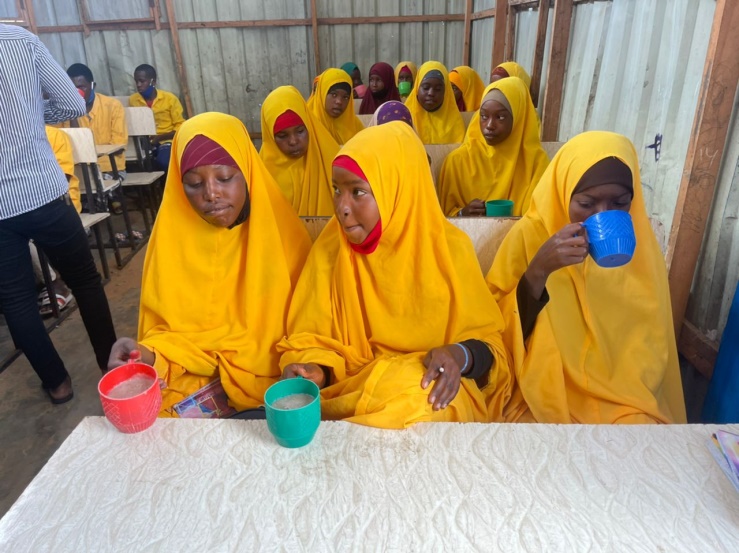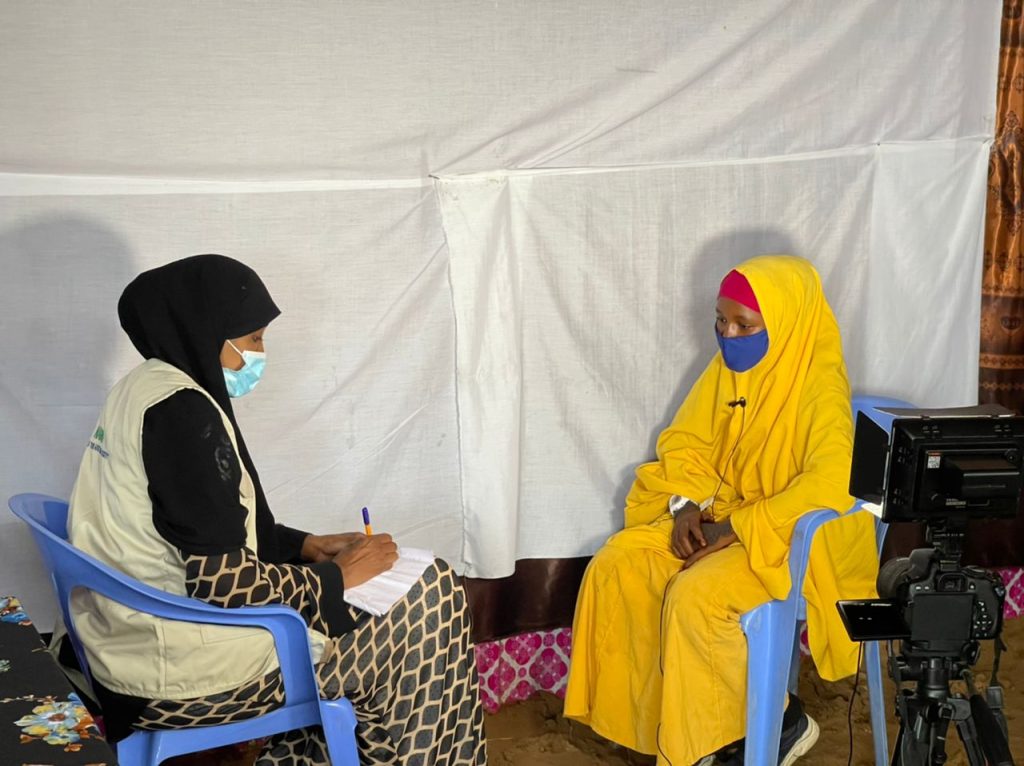Displaced families are more concerned with where they will get food, water, and shelter when they first arrive at internally displaced persons’ settlements than they are about where their children will go to school. According to the Somalia Situation Drought Report in September by UNOCHA, the drought has disrupted education for an estimated 2.4 million school-aged children, with nearly 1.7 million already out of school. A further 720,000 children are at risk of dropping out of school as more families get displaced by drought while others can no longer afford the cost of schooling.
The children who make it to school in Somalia normally face numerous difficulties including a shortage of qualified teachers and inadequate learning materials. This has hindered them from accessing quality education, which is essential for their long-term development, the eradication of poverty, the empowerment of women and girls and addressing future inequality in the society.
NAPAD School Feeding Programme
Nomadic Assistance for Peace and Development (NAPAD) in partnership with Diakonie Katastrophenhilfe (DKH) is implementing a school feeding programme in 5 schools re-established by NAPAD in Kahda and Garasbaley districts IDP settlements, Banadir region, Somalia. The programme is providing nutritious breakfast and lunch to 1,640 students (of whom 827 are girls) enrolled in Gurmad, Maqsuud, Mudan, Nadifo and Koshin primary schools. These hot meals are critical especially now when Somalia is facing its worst drought in over 40 years.

Alongside the provision of school meals, the children, mostly hailing from displaced households are provided with learning and teaching materials, have access to age, gender, disability friendly and protected learning spaces, have access to appropriate hygiene and sanitation facilities, have access to skilled teachers, and are provided with psychosocial support especially for children facing child abuse including gender-based violence.
Sid Ahmed, the deputy headteacher at Masquud Primary School, has reported that the meals provided are not only improving child nutrition but also increasing child enrolment and attendance. The enrolment of girls is also preventing early marriages, early pregnancies and other forms of gender-based violence among girls.
“The school has seen an increase in enrolment of students of 31% since we started the school feeding program. We expect to enrol more children as the program continues,” reported Sid Ahmed.

“I hope NAPAD continues to provide us with food at school since I no longer feel hungry in class which lets me concentrate and understand what the teacher is teaching.” Reports Salado Mukhtar Maalim, a student at Gurmad primary school. The twelve-year-old, class five student was enrolled in the school in October 2021. She reported that the food she got at school sometimes was the only main meal she would get to eat in a day. This is because sometimes there was no food at home. She also said she enjoys learning and that she aspires to become a doctor when she grows up so that she can help sick people get better.
